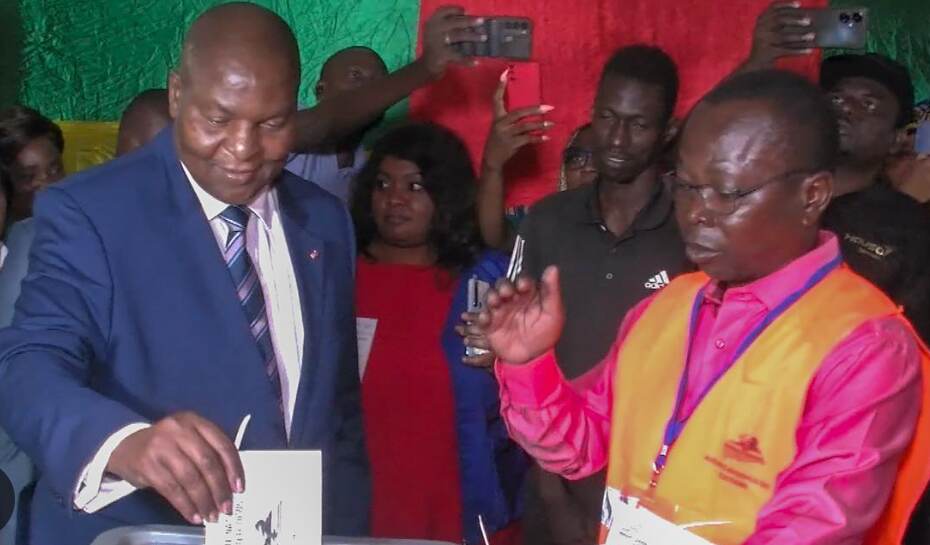Controversial Referendum in Central African Republic Raises Concerns over President's Third Term Bid
The Central African Republic (CAR) holds a referendum on a new constitution, potentially granting President Touadera a third term. Concerns about his desire to remain in power and lack of transparency surround the vote. The outcome will impact the country's future.
The Central African Republic (CAR) has begun voting in a referendum on a new constitution that has the potential to grant President Faustin-Archange Touadera a third term. The proposed constitution would extend the presidential mandate from five to seven years and abolish the two-term limit, allowing Touadera to run again in 2025. This move has raised concerns about the president's desire to remain in power indefinitely.
The country, which has a history of enduring several coups, is one of the world's poorest, making this referendum a significant event for its population of 5.5 million people. Voting began with some delays, opening around an hour late, and is scheduled to close at 4:00 p.m. (local time).
Approximately 1.9 million people have been called on to cast their ballots. However, the majority of the opposition parties, civil groups, and armed rebels have called on voters to boycott the exercise, citing concerns about the lack of an up-to-date electoral register and the independence of institutions responsible for ensuring a free and fair vote.
Opinion polls suggest that the "yes" camp is likely to win, but there are doubts about the level of participation, as many CAR citizens prioritize their day-to-day survival in a challenging economic and security context. It is believed that the low turnout could be due to the lack of interest among the general populace for an exercise that appears to mobilize only those close to those in power.
The international community has also been closely observing the situation in CAR. Human Rights Watch (HRW) has expressed concerns about the increasing influence of private Russian mercenary group Wagner, which has been operating in the country since 2018.
HRW has accused the Russian embassy personnel of attempting to influence the political process and amend the constitution to enable Touadera to stay in power. This has led to questions about the fairness and transparency of the referendum. The final outcome of the referendum will not be known for several days, as provisional results are expected to be announced after eight days.
The national electoral authority has scheduled the publication of the definitive outcome for August 27. Meanwhile, Touadera has announced that Russia and Rwanda, countries that have increased their influence in CAR in recent years, would be supporting security forces during the vote.
Overall, the outcome of the referendum will have significant implications for the future of CAR and its political landscape. It remains to be seen how the international community will react to the potential extension of Touadera's presidency and the concerns raised about the fairness of the referendum.




